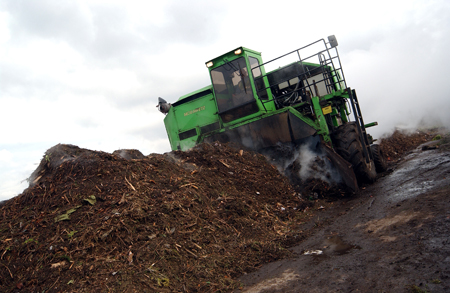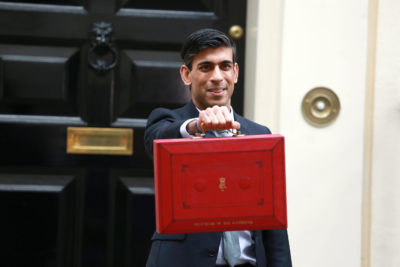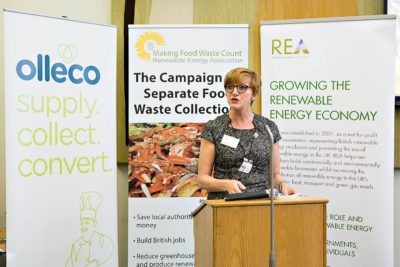The REA is “the UK’s largest” trade association for renewable energy and clean technologies with around 550 members, operating mainly in the organics sector.

In its plea to the environment secretary, the REA said the waste sector has been “heavily impacted” by soaring recruitment costs amidst the HGV driver shortage, leading to a suspension of food and garden waste collections nationwide.
The Association also warned that the removal of red diesel entitlement will further increase costs that will then be passed on to local authorities.
The REA warned that its members had reported £1.20-£2.70 per tonne increases in operational costs when switching to white diesel – for many, “this is their current profit margin”.
In most cases the increase in costs will have to be passed back to the waste producer, such as local authorities, the WRA warned.
Red diesel
In the 2020 Budget, the government announced plans to scrap the lower rate of fuel duty on red diesel — which many operators use to power machinery — to bring it in line with ordinary diesel, which is liable for the standard rate of fuel duty.

The government says those entitled to use red diesel pay a duty rate of 11.14 pence per litre, which is “significantly less” than those using standard road fuel diesel, which has a duty rate of 57.95 pence.
The change is due to come into place from April 2022.
Delay
The REA urged Eustice to delay its roll-out for a year, as the sector has been hit by a number of difficult scenarios since the consultation on the tax was ran in Autumn 2020.
It says the HGV driver shortage has increased recruitment and retention costs, leading to driver shortages and local authorities being forced to prioritise collections.
This means some councils have suspended food and garden waste collections, resulting in lower volumes arriving at waste sites for treatment and a further financial hit with the subsequent loss in revenue from gate fees.
It is unlikely that the pressures that the waste sector is currently facing will improve markedly by April 2022
– Dr Nina Skorupska
‘Financial difficulties’
Dr Nina Skorupska, chief executive of the REA, reiterated that the association strongly supports the transition to sustainable and renewable fuels, but warned that removing the waste sector’s entitlement to use red diesel risks “compounding the financial difficulties” of the industry.

She said: “Recent months have seen food and garden waste collections suspended by local authorities up and down the country. It is unlikely that the pressures that the waste sector is currently facing will improve markedly by April 2022, with our members warning that a switch to white diesel will wipe out their already razor thin margins.
“The government needs to help the waste sector in the short term by extending its red diesel entitlement, while also putting in place direct support for new zero carbon vehicles in waste management to facilitate a permanent shift away from fossil fuels. This way we can simultaneously maintain vital public services, protect waste management companies, and cut emissions.”
Useful links
REA’s letter to the environment secretary George Eustice








Subscribe for free